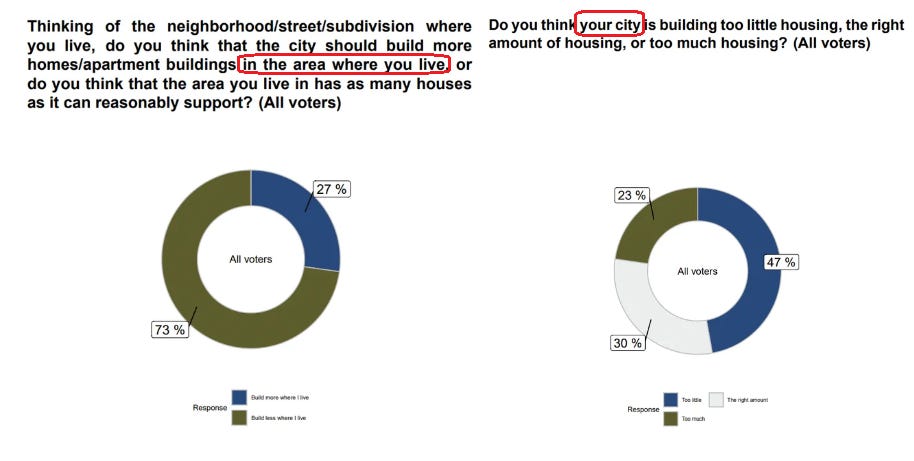Homeowners fear change to their neighbourhood, not falling prices
Nobody believes property values will fall, so why would they fear it?
Paul Vieira cites a recent study:
Zoning restrictions have enjoyed the support of existing homeowners, analysts and academics say, because the limits help keep housing prices and household wealth elevated. City council members “are more likely to cater to the needs of homeowners because homeowners are often long-term resident voters, whereas renters are not,” said researchers in a paper published in November in the Journal of Urban Economics, titled “Homeowner Politics and Housing Supply.” The authors said that during a 2009-to-2020 period, members of Toronto’s city council representing districts with many homeowners were more likely to oppose new developments.
I’m actually skeptical of this argument. I think homeowner opposition to new housing is primarily driven by fear of change to their immediate neighbourhood (“small-c conservatism”) rather than fear of falling property prices.
In Vancouver and Toronto, everybody believes that in the long term, property prices will always go up. Why would they fear something that they don’t think will happen?
Opposition is hyperlocal. A lot of people agree that we need more housing, but they fear the unknown impacts of change to their neighbourhood - they want it built somewhere else.
A Mainstreet poll of Torontonians from May: 73% were opposed to more housing in their neighbourhood. But only 23% were opposed to more housing across the city, which is what would affect property values.
A Nanos poll from September for Bloomberg News: “70 per cent of respondents said they would be happy (40 per cent) or somewhat happy (30 per cent) to see home prices go down.” BNN Bloomberg: Home prices in Canada are so stretched that even owners want them to fall.
A Pollara poll from October: “About 60 per cent of Canadians say they support increasing density in cities across the country, according to polling data published today by Pollara Strategic Insights, a market research group. However, when asked how they would feel if a single-family home on their block was converted into a triplex, only about 20 per cent said it would be a ‘good thing.’” Toronto Star: Canadians want denser housing so long as that triplex isn’t next door, poll finds.
This seems to be human nature. Brynn Lackie:
I regularly rail against NIMBYism in these columns, but when we recently learned that the Starbucks at my corner will be giving way to a new 11-story building, my immediate reaction was frustration and dread.
I thought of what a drag it will be to live through the construction, how street parking will get even harder to come by, what an adjustment it will be to have all those new neighbours staring down into my backyard. I even caught myself saying, out loud, to human people that could actually hear me, that the light will change in my backyard and our trees will probably die.
Turns out that I am that NIMBY I love to disparage so much!
So how do you deal with hyperlocal opposition? To quote an earlier post:
One of the key recommendations of the MacPhail Report was that municipal governments should focus on city-wide policy, rather than making a decision on each and every individual project on a site-by-site basis.

